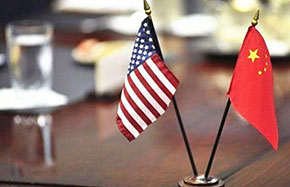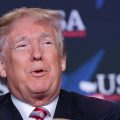
Commerce ministry says farming, high-tech and services are pain points
China cannot be blamed for the United States’ deficit in bilateral trade as complicated US trade structures are the real reason, Chinese officials said on Friday.
In this context, it is important to highlight that in certain sectors like high-tech products, agriculture and services, China is also bearing a heavy deficit in trade with the US, they said.
Their comments follow recent remarks by US Commerce Secretary Wilbur Ross that imports from China have surged by 200 percent, creating a deficit of $309 billion in the country’s foreign trade in the past 15 years.
Gao Feng, spokesperson for the Ministry of Commerce, said the China-US trade balance has long been a complicated issue and needs to be studied systematically.
Many factors led to China’s surplus in trade with the US, including differences in economic structures, focus on certain industries with advantages, international division of labor, the system of trade statistics and US restrictions on high-tech exports to China, Gao said.
“China has trade surplus in labor-intensive industries but has notable trade deficit in agriculture, technology and capital-intensive businesses with the US. It is the markets, producers and consumers in the two countries that decide the imports and exports.”
Since April, China and the US have made steady progress in their meetings to address trade imbalance. For instance, China has lifted the ban on import of US beef last month.
“The US side needs to understand that trade in services is also part of the business. For China, the US is the biggest source of service trade deficit and it has been growing fast in recent years,” said Xing Houyuan, a member of the expert committee of the China Council for the Promotion of International Trade.
Bilateral trade in services has tripled to $110 billion in 2016 from around $37 billion in 2006, but China’s deficit in this segment continues to widen. Between January and May this year, China’s deficit in bilateral trade in services reached $23 billion, up 17 percent year-on-year.
“China does not aim for trade surplus, and is willing to further increase volume of imports from the US. We hope the US will do the same and take productive actions in easing restrictions on imports from China,” said Liu Chao, deputy director-general of legal affairs at the CCPIT.
“We have also noticed that some countries such as the United States and Germany are appealing to their legislative bodies to tighten the policy on review and control foreign direct investment,” said Liu.
“Healthy FDI activities have been enjoyed by both developed countries, which facilitated the rapid rise in the incomes of a number of developing economies.”
Gao of the Ministry of Commerce said, “China has been constantly supporting free trade and trade globalization, as well as offering more favorable policies to attract FDI.”
Agreed Sang Baichuan, director of the Institute of International Business at the University of International Business and Economics. “We hope these countries would take non-discriminatory and transparent steps while adjusting their policies, as well as protect Chinese investors’ interest to maintain fair market environment.”


